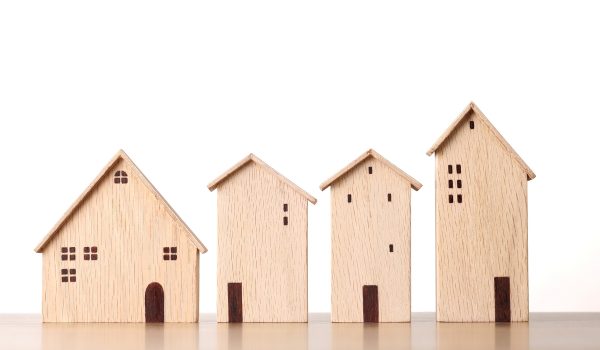
Property values in the East Midlands fared far better than homes and apartments in the West of the region last month.
The latest figures from the property portal Rightmove’s UK house price index showed that the price of property in the East Midlands has increased by 1.9 per cent year-on-year, while the figure for the West Midlands was lower at 1.5 per cent. In addition, the value of property dropped 0.1 per cent from July in the East Midlands and 0.7 per cent in the West Midlands.
When it comes to the value of the average property however, West Midlands has a narrow lead – of around £1,500 – with the average home priced there at £228,839 compared to an average of £227,383 in the East Midlands.
Longer wait to see property in the East Midlands
The survey – which looked at more than 130,000 property prices displayed on the Rightmove portal between July 7th and Aug 10th – also revealed that it takes longer to sell a property on average in the East Midlands than it does in the West Midlands (at 59 days and 54 days respectively).
Meanwhile, on a national UK-wide level (excluding Inner London), the cost of the average home for the three groups first-time buyers, second steppers and top of the market have all increased since the same period last year. The typical first-time buyer property is now £191,009 – an annual increase of 0.8 per cent. A second stepper home is now £276,109 (up one per cent on the previous year) and properties in the top of the market league have increased most – by 1.4 per cent to an average price tag of £539,504.
Rival property portal Zoopla claims property in the West Midlands is rising faster than elsewhere in the UK. Their June analysis showed property there rising by as much as £36.58 per day. The East Midlands came seventh in the list of regions, with an average rise of £9.97 and a total £1,825 increase.
Birmingham Build to Rent is booming
Build to Rent is fast becoming recognised as one of the most popular sectors in Birmingham, according to a recent report in the Times newspaper. A total of 2000 apartments are currently being built and are predominantly being aimed at the younger population (those aged 18 to 35). And with 40 per cent of the city’s residents currently aged 25 years and under, it’s certainly a huge sector to target.
The young person’s market is, of course, helped by the fact there are four universities there. And, better still, a report by the Centre for Cities, showed that nearly half of all graduates in Birmingham (49 per cent) remain in the city even after they have graduated. But then, Birmingham did have 18,590 start-ups last year, in addition to boasting the HQs of some major brands such as Deloitte, HMRC, PwC, and HSBC. And then there is the Jewellery Quarter, for those residents of a more creative type. In other words, Birmingham is a city to watch.



